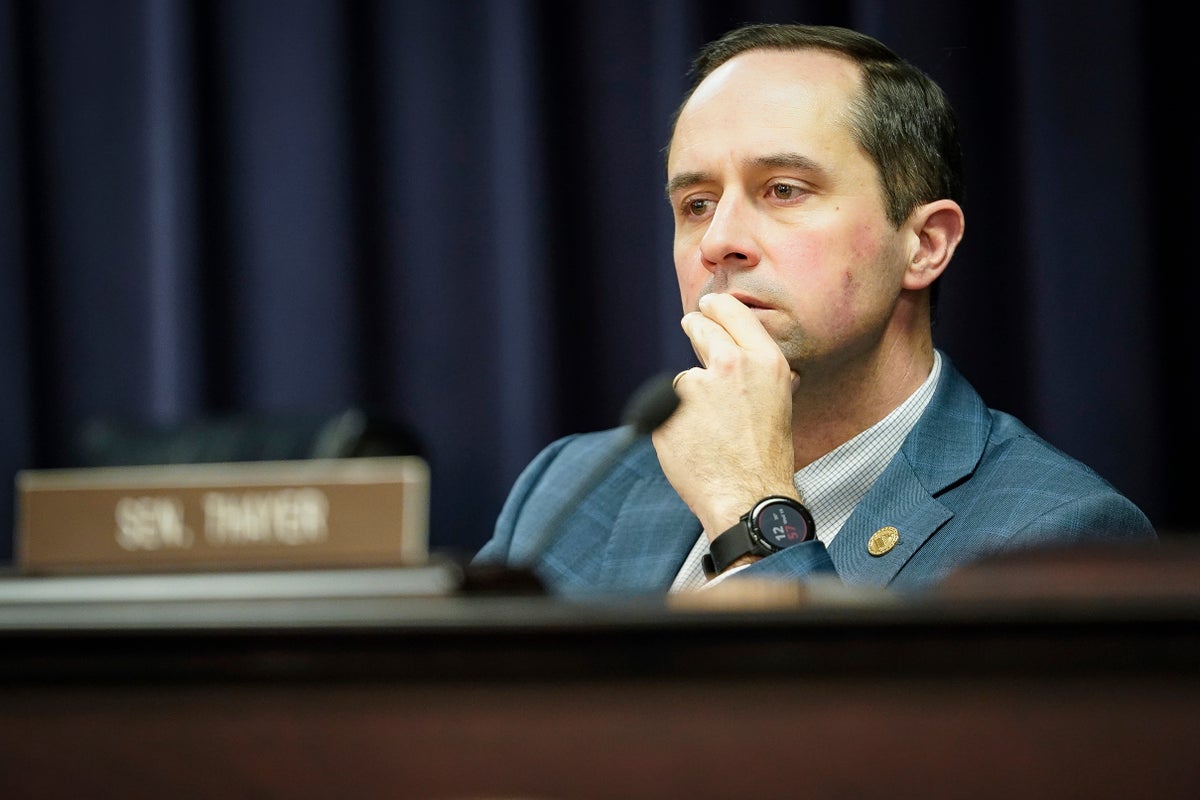
Kentucky's individual income tax rate is set to remain the same in 2025 after the state failed to meet certain fiscal requirements that would have ushered in another reduction under a Republican plan to phase the tax out.
According to a recent letter to lawmakers from state Budget Director John Hicks, only one of two trigger conditions were met in the state fiscal year that ended June 30.
Kentucky achieved a balance in the Budget Reserve Trust Fund that was at least 10% of General Fund revenue, but came up short on another condition — that General Fund revenues exceeded appropriations and the cost of a 1% reduction in the income tax. The conditions linked to the tax cuts were met for 2023 and 2024, triggering half-percentage-point cuts for both years.
The rate is set to drop to 4% at the start of 2024.
Hicks' report is required by the legislature as a condition of the 2022 plan to gradually eliminate the individual income tax. His letter to lawmakers gave financial details, but Democratic Gov. Andy Beshear's office said it should not be construed as any statement on the tax cuts.
The gradual phase-out of the tax was the cornerstone of a Republican plan approved in 2022 to shift the tax burden from income to consumption. Supporters of the plan said it will fuel more economic growth and population gains by enabling people to keep more of the money they earn. Opponents have argued the changes benefit wealthy Kentuckians at the expense of those least able to bear the tax burden because sales taxes tend to be regressive. Critics also worried the phase-out would deprive essential state services of sufficient revenue.
While the income tax is set to remain the same in 2025, the GOP chairmen of the House and Senate budget committees said the pause shows that the legislation is working as intended.
“The plan is methodical, with conditions designed to exercise an abundance of caution and ensure that we are successful in eliminating the tax without endangering necessary government services,” said Rep. Jason Petrie, chairman of the House budget committee.
Sen. Chris McDaniel, chairman of the Senate budget committee, said the failure to meet the requirements for another rate reduction shows “we appropriately weighed the importance of lowering taxes with the need for critical government functions such as education, corrections and more” when passing the 2022 tax legislation.
By the end of 2024, income tax reductions in 2023 and 2024 will have saved Kentucky taxpayers $1.8 billion, he said.
The looming tax-cut pause comes as the state has continued to post robust tax collections. Beshear, who is in the midst of a reelection campaign, says the state is headed toward another one of its best years for economic development. Republican lawmakers say the state's record economic growth during Beshear's term stems from pro-business policies passed by the legislature.
Beshear is being challenged in the November election by Republican Attorney General Daniel Cameron.
In July, the state said its General Fund receipts totaled $1.1 billion, marking the 11th straight month with revenues exceeding $1 billion. The General Fund pays for most state services, including education, health care and public safety. The strong revenue collections have continued after the income tax rate was cut.
Petrie said the state still remains “on track” to eliminate the personal income tax.
The tax-cut pause could spark heated discussions over state spending in the next two-year budget to be crafted during the 2024 legislative session that begins in January.
“It is clear that the solution is the same as it always was: Frankfort must wean itself off the taxpayer dollars it is accustomed to wasting, and the legislature must rein in spending,” said Republican Rep. Savannah Maddox.
The Bluegrass State has also dealt with extreme weather emergencies, such as historic flooding last summer in eastern Kentucky, that put an extra burden on the state budget.







